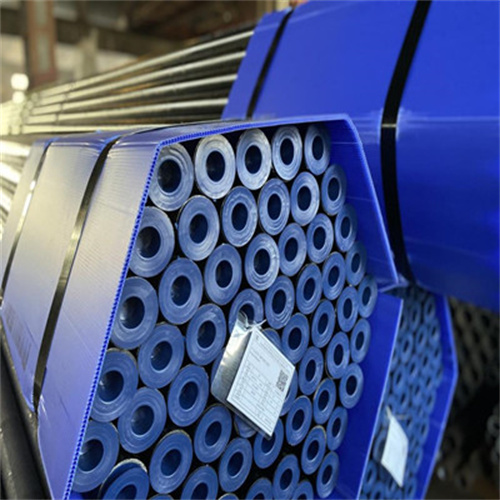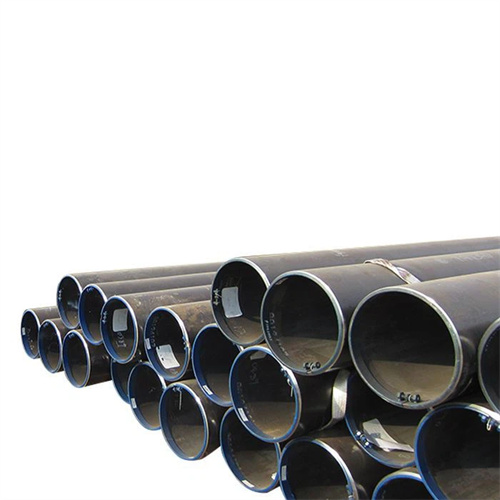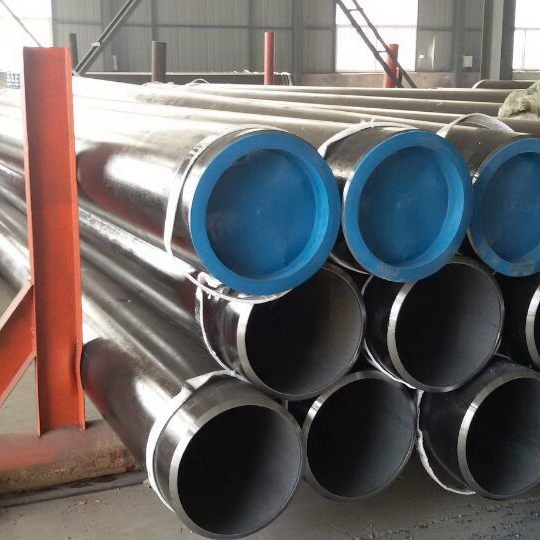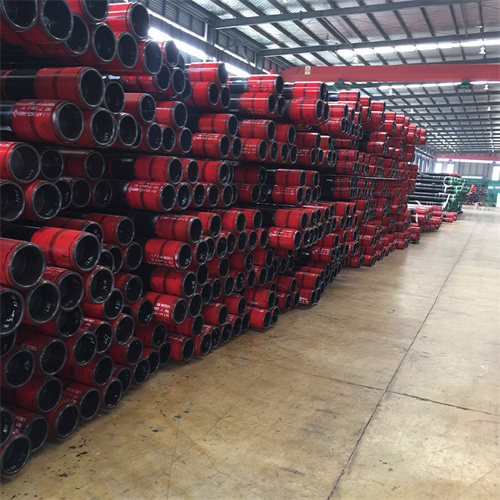Benefits of Using SMLS Pipe in Industrial Applications
SMLS pipe, or Seamless pipe, is a type of steel pipe that is manufactured without any Welding or seams. This seamless construction offers a number of benefits that make it a popular choice for industrial applications. In this article, we will explore the advantages of using SMLS pipe in various industries.
One of the key benefits of SMLS pipe is its superior strength and durability. Because seamless pipe is made from a single piece of steel, it is able to withstand higher pressure and temperature levels than welded pipe. This makes it an ideal choice for applications where reliability and safety are paramount, such as in the Oil and gas industry.
In addition to its strength, SMLS pipe also offers excellent Corrosion resistance. The seamless construction of the pipe eliminates the weak points that are present in welded pipe, where the heat from the welding process can cause the steel to become more susceptible to corrosion. This makes SMLS pipe a long-lasting and cost-effective solution for industries that require pipes to withstand harsh environments.
Another advantage of SMLS pipe is its smooth interior surface. Because seamless pipe is manufactured without any seams or welds, it has a smooth bore that allows for better flow of liquids and gases. This can help to reduce pressure drop and improve overall efficiency in industrial processes.
SMLS pipe is also known for its uniformity and consistency. Because it is manufactured using a precise process that involves heating and stretching the steel, seamless pipe has a consistent Wall thickness and diameter throughout its Length. This ensures that the pipe will fit properly with other components in a system, reducing the risk of leaks or failures.

Furthermore, SMLS pipe is easy to install and maintain. Because it is manufactured in a single piece, there are no welds or seams that need to be inspected or repaired. This can help to reduce downtime and maintenance costs in industrial facilities, making seamless pipe a convenient and reliable choice for a wide range of applications.
In conclusion, SMLS pipe offers a number of benefits that make it an attractive choice for industrial applications. From its superior strength and durability to its corrosion resistance and smooth interior surface, seamless pipe provides a reliable and cost-effective solution for industries that require high-performance piping systems. Whether used in the oil and gas industry, chemical processing, or power generation, SMLS pipe is a versatile option that can help to improve efficiency and safety in a variety of applications.
A Comprehensive Guide to ASTM A179/A178/A192 A106 Gr. B A53 Gr. B Sch40 Sch80 Seamless Steel tube Ss Pipe
When it comes to choosing the right type of pipe for your project, there are a variety of options available on the market. One popular choice among many industries is Seamless steel pipe. Seamless steel pipe offers a number of advantages over other types of piping, including increased strength, durability, and resistance to corrosion. In this comprehensive guide, we will take a closer look at some of the most commonly used seamless steel pipes, including ASTM A179, ASTM A178, ASTM A192, A106 Gr. B, A53 Gr. B, Sch40, Sch80, and SS pipe.
ASTM A179 is a specification for seamless cold-drawn low-Carbon steel heat-exchanger and condenser tubes. This type of pipe is commonly used in applications where high heat transfer efficiency is required, such as in power plants, chemical plants, and refineries. ASTM A179 pipes are known for their excellent thermal conductivity and are able to withstand high temperatures and pressures.
ASTM A178 is another popular choice for seamless steel pipe. This specification covers electric-resistance-welded carbon steel and carbon-manganese steel boiler and superheater tubes. ASTM A178 pipes are commonly used in industrial boilers and heat exchangers, where high temperatures and pressures are present. These pipes are known for their high strength and durability, making them a reliable choice for a wide range of applications.
ASTM A192 is a specification for seamless carbon steel boiler tubes for high-pressure service. These pipes are commonly used in power plants, refineries, and chemical plants, where high temperatures and pressures are present. ASTM A192 pipes are known for their excellent heat transfer properties and are able to withstand extreme conditions without compromising on performance.
A106 Gr. B and A53 Gr. B are two of the most commonly used grades of seamless steel pipe. A106 Gr. B is a specification for seamless carbon steel pipe for high-temperature service, while A53 Gr. B is a specification for seamless carbon steel pipe for general use. Both grades are known for their high strength and durability, making them suitable for a wide range of applications.
Sch40 and Sch80 refer to the wall thickness of the pipe. Sch40 pipes have a standard wall thickness, while Sch80 pipes have a thicker wall thickness. The choice between Sch40 and Sch80 will depend on the specific requirements of your project, including the pressure and temperature conditions.
SS pipe, or Stainless steel pipe, is another popular choice for seamless steel piping. Stainless steel pipes are known for their corrosion resistance and are able to withstand harsh environments without rusting or corroding. SS pipes are commonly used in industries such as food processing, pharmaceuticals, and chemical processing, where cleanliness and hygiene are essential.
In conclusion, seamless steel pipes offer a number of advantages over other types of piping, including increased strength, durability, and resistance to corrosion. ASTM A179, ASTM A178, ASTM A192, A106 Gr. B, A53 Gr. B, Sch40, Sch80, and SS pipe are all popular choices for seamless steel piping, each with its own unique properties and applications. By understanding the differences between these types of pipes, you can choose the right one for your project and ensure its success.





